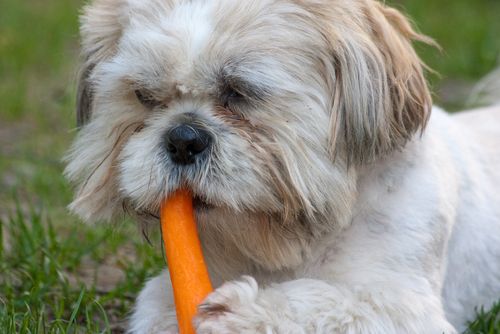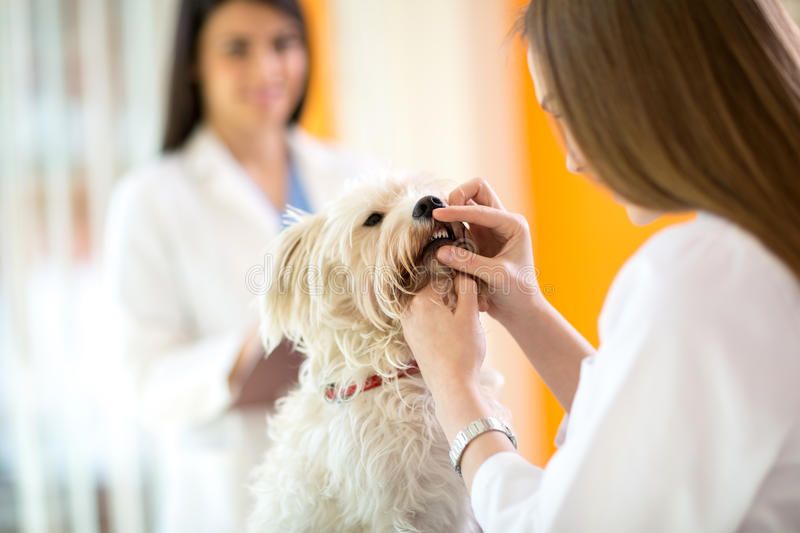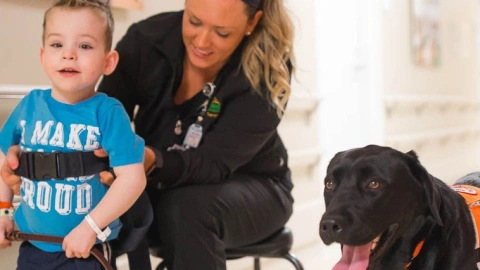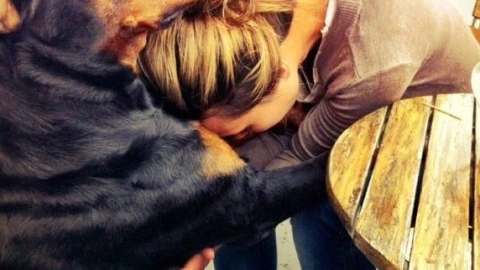Dog / Detail
Helping Your Overweight Dog Shed Pounds and Stay Healthy
Jonathan Bennet | 04 October 2024 | 16:05
Just like humans, dogs can struggle with obesity. Excess weight can significantly impact a dog's quality of life, leading to various health problems.
If your dog is overweight, it's important to take steps to help them achieve a healthy weight.
Helping an overweight dog lose weight requires patience, consistency, and a commitment to providing a healthy lifestyle.

By following the strategies outlined in this article and working closely with your veterinarian, you can help your dog achieve a healthier weight and improve their overall quality of life.
The causes of canine obesity, the potential health risks associated with it, and effective strategies for helping your dog lose weight and maintain a healthy body condition.
Causes of Canine Obesity
Several factors can contribute to canine obesity:
Overfeeding: Providing your dog with too many calories can lead to weight gain.
Lack of Exercise: Insufficient physical activity can contribute to weight gain and decreased muscle mass.
Medical Conditions: Certain health conditions, such as hypothyroidism or Cushing's disease, can cause weight gain.
Genetics: Some breeds may be more prone to obesity due to their genetic makeup.
Age: As dogs age, they may become less active and require fewer calories.

Health Risks Associated with Canine Obesity
Obesity can lead to a variety of health problems in dogs, including:
Joint Pain: Excess weight can put strain on joints, leading to arthritis and other joint disorders.
Heart Disease: Obesity can increase the risk of heart disease, including heart failure and arrhythmias.
Diabetes: Overweight dogs are more likely to develop diabetes, a condition that affects blood sugar regulation.
Respiratory Problems: Excess weight can put pressure on the lungs, making it difficult for dogs to breathe.
Reduced Lifespan: Obese dogs generally have a shorter lifespan compared to dogs at a healthy weight.

Strategies for Helping Your Overweight Dog Lose Weight
Consult with Your Veterinarian: Before embarking on a weight loss program, it's essential to consult with your veterinarian.
They can rule out any underlying medical conditions and provide personalized advice.
Gradual Weight Loss: Aim for a gradual weight loss of 1-2% of your dog's body weight per week. Rapid weight loss can be harmful and may lead to muscle loss.
Dietary Changes: Transition your dog to a high-protein, low-calorie diet formulated for weight management. Consult with your veterinarian for specific recommendations.
Portion Control: Carefully measure your dog's food to ensure you are providing the appropriate amount.
Regular Exercise: Increase your dog's physical activity gradually. Start with short, frequent walks and gradually increase the duration and intensity as your dog becomes fitter.

Avoid Treats and Table Scraps:
High-calorie treats and table scraps can derail your dog's weight loss efforts.
Monitor Progress: Track your dog's weight and body condition regularly. This will help you assess the effectiveness of your weight loss plan.
Tips for Maintaining a Healthy Weight
Regular Check-ups: Schedule regular veterinary appointments to monitor your dog's weight and overall health.
Consistent Routine: Maintain a consistent feeding and exercise schedule to help your dog stay on track.
Avoid Sedentary Lifestyle: Encourage your dog to be active, even if it's just playing in the yard or going for short walks.
Reward Healthy Behaviours: Use positive reinforcement to reward your dog for good behaviour, such as eating their meals without begging or going for walks without pulling.
Related
-

The Healing Power of Dogs: How Canine Therapy is Revolutionizing Mental Health and Boosting Positive Energy in Humans
Dog14 November 2024
-

A Pawsitive History: Dogs of Nuremberg
Dog09 November 2024
-

The Role of Oxytocin in the Human-Dog Bond: The Science Behind Our Deep Connection
Dog06 November 2024
-

Beyond the Beach: Jamaica's Dog Lovers
Dog29 October 2024
-

A Dog's Delights: Homemade Snacks for Our Furry Babies, Recipes Included!
Dog29 October 2024
-

A Dog's Disorientation: Understanding Your Dogs' Wanderlust
Dog29 October 2024
Popular
-

-

A Pawsitive History: Dogs of Nuremberg
09 November 2024 -

-

Beyond the Beach: Jamaica's Dog Lovers
29 October 2024 -
